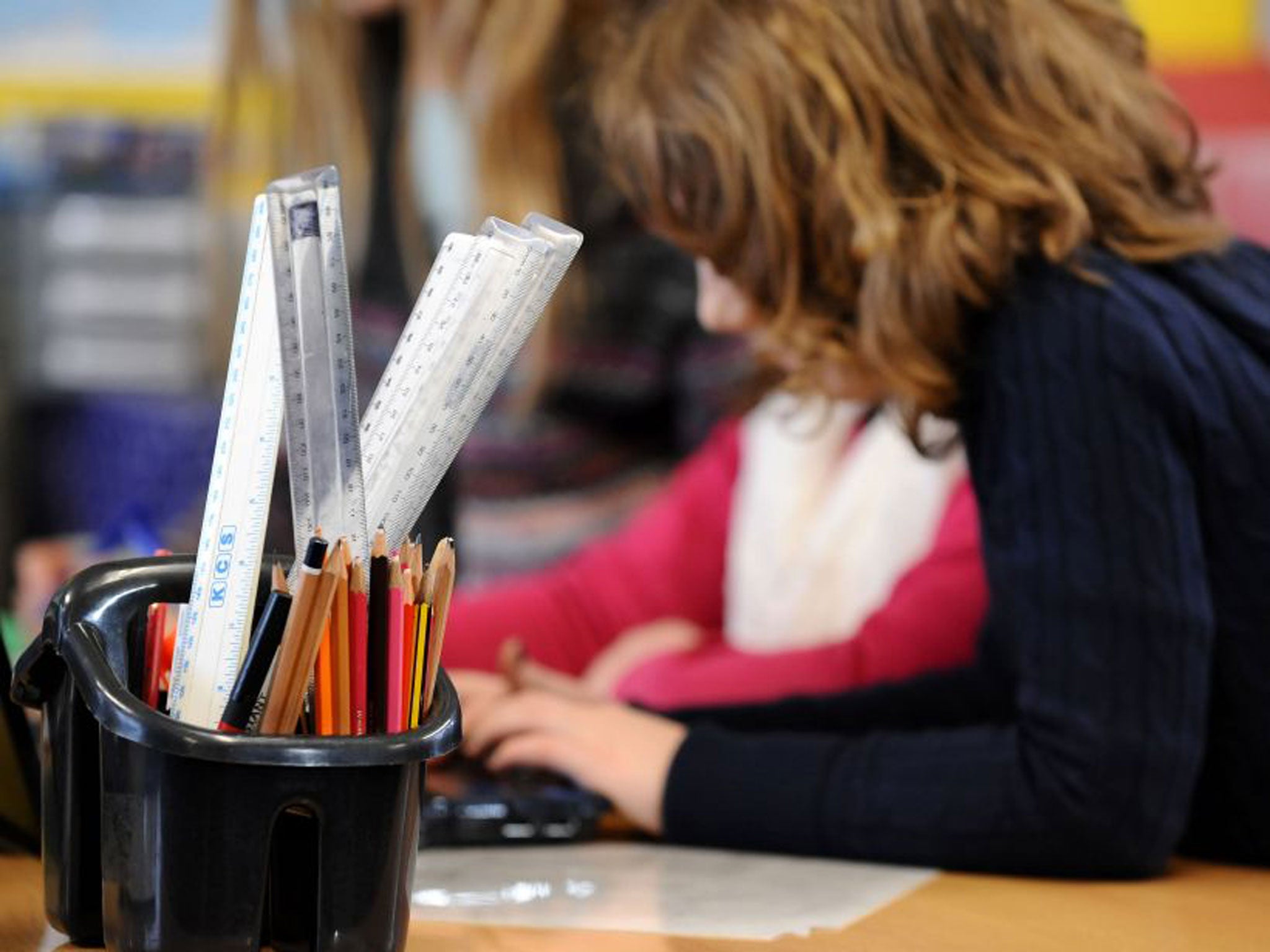Secondary school league tables: Dramatic increase in number of students studying traditional subjects
Education Secretary hails 250,000 fewer pupils in underperforming schools

Your support helps us to tell the story
From reproductive rights to climate change to Big Tech, The Independent is on the ground when the story is developing. Whether it's investigating the financials of Elon Musk's pro-Trump PAC or producing our latest documentary, 'The A Word', which shines a light on the American women fighting for reproductive rights, we know how important it is to parse out the facts from the messaging.
At such a critical moment in US history, we need reporters on the ground. Your donation allows us to keep sending journalists to speak to both sides of the story.
The Independent is trusted by Americans across the entire political spectrum. And unlike many other quality news outlets, we choose not to lock Americans out of our reporting and analysis with paywalls. We believe quality journalism should be available to everyone, paid for by those who can afford it.
Your support makes all the difference.A dramatic increase in the number of teenagers studying a traditional academic curriculum in state schools has been revealed in the Government's exam league tables.
Figures show the number of pupils eligible for the Government’s new English Baccalaureate has soared by more than 50 per cent in the past year - with an extra 72,000 pupils taking the total number to 202,000.
Pupils qualify for the EBacc - as it has been dubbed - by getting at least a C grade pass in English, maths, history or geography, the sciences and a language at GCSE. Ministers argue these are the subjects most likely to gain pupils access to one of the country’s most selective universities.
A breakdown of the figures shows that at least half the pupils took the EBacc in 735 schools - just under one in four of the total. That compares to 334 schools the previous year.
In 237 schools, more than half the pupils passed, up from 174 in 2012.
This year is the first time that the full impact of the EBacc’s introduction can be seen - as students can now have studied it for two years.
Only 37 schools in the country failed to enter a single pupil for the qualification - down from 120 in 2012.
Meanwhile, a total of 154 secondary schools have failed to reach the Government’s minimum target of 40 per cent of their pupils obtaining five A* to C grade passes at GCSE - which means they face being forced to join the Government’s academies programme with a new sponsor with a track record of improving weak schools taking them over.
The Government raised the floor target from 35 per cent this year and - if the new minimum had been in place last year - 195 schools would have failed to meet it.
“These figures are a credit to the professionalism and hard work of teachers,” said Education Secretary Michael Gove.
“Thanks to their efforts, the number of children taught in under-performing schools has fallen by almost 250,000 since 2010.
“This progress has been achieved at the same time as our EBacc has ensured many more young people are taking the core subjects which will most help them find a good job or go on to university.”
Top performing school was Colyton Grammar School in Devon for the second year running where all pupils obtained at least a C grade or higher in five subjects at GCSE - while the most improved school was St Thomas More Catholic school in north London, which saw the percentage of pupils obtaining the magic five A* to C grades including maths and English rise from 31 per cent to 91 per cent in three years.
Two schools, Queen Elizabeth’s in Barnet and Chelmsford County School for Girls had a 100 per cent record in the number of pupils qualifying for the EBacc.
Today’s league tables list academic and vocational qualifications separately for the first time - a move opposed by teachers’ leaders. Dr Mary Bousted, general secretary of the Association of Teachers and Lecturers, said: “We are not in favour .. because it send the wrong message to pupils, parents and schools about what is important.
“Academic and vocational qualifications are of equal value, should be held in equally high esteem and treated as equal in a unified reporting system.”
The performance tables can be found here.
Join our commenting forum
Join thought-provoking conversations, follow other Independent readers and see their replies
Comments